"We feel we managed to reach the rock sound we've been looking for for many years" – MONO's Takaakira 'Taka' Goto talks new live album and 22 years together
Beyond The Past captures the Japanese instrumentalists with the Platinum Anniversary Orchestra
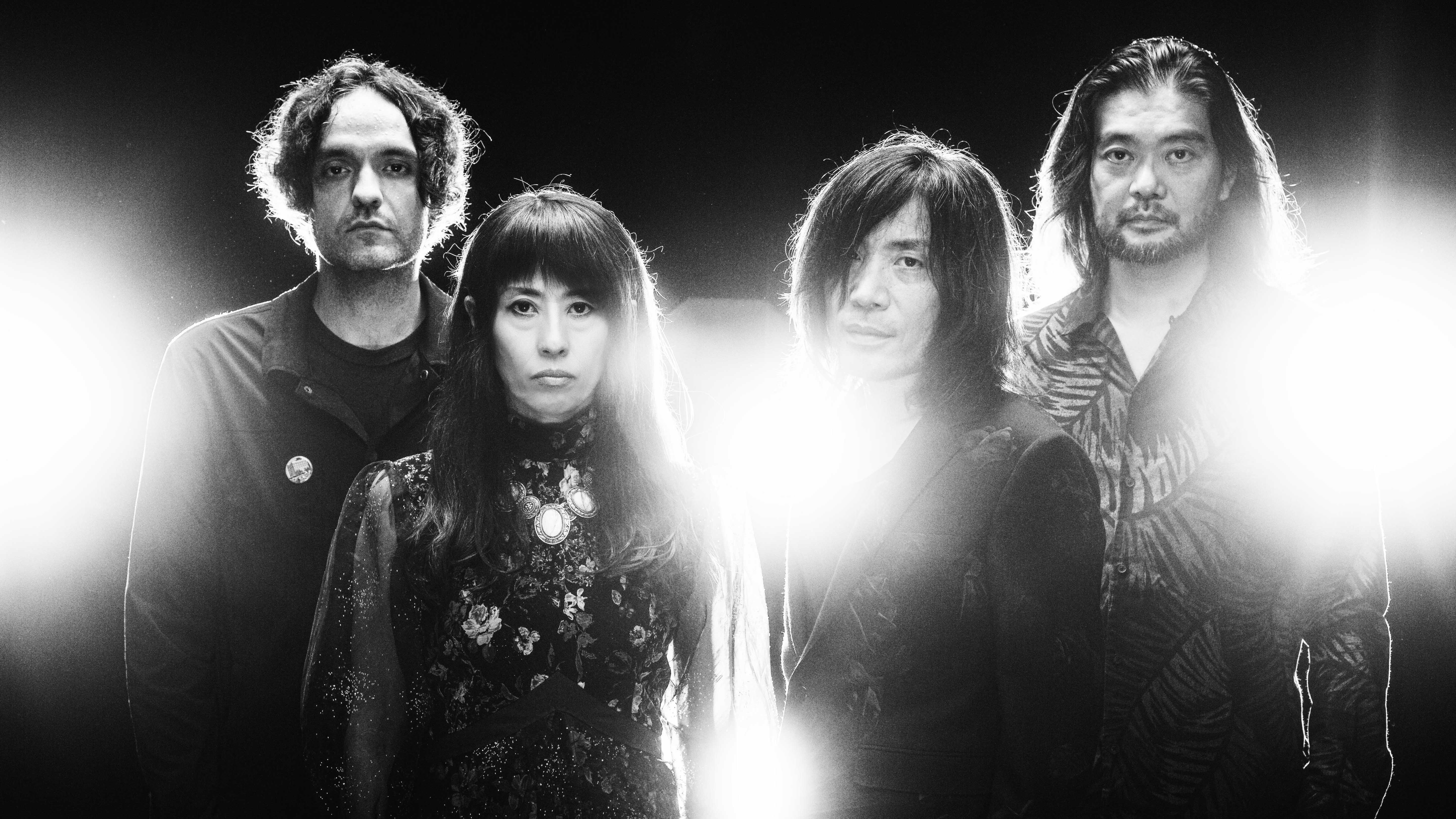
Japan's MONO are one of instrumental rock's greatest emotional forces to witness live, taking their layered and nuanced records to a new level. This is especially true of new live album Beyond The Past; capturing the Tokyo four-piece in prime form with the Platinum Anniversary Orchestra at London's Barbican Centre in front of 2,000 people.
The two-hour show is released on 19 March and although the words 'epic' and 'cinematic' are thrown around a lot with regards to post-rock, here they really do seem unavoidable in describing a very special show. We interviewed guitarist Takaakira 'Taka' Goto to find out more about the experience and the band's future plans.
When did you decide to release your Beyond the Past performance as a live album? Was it the plan all along, or something you decided on more recently?
"I knew that the 10th album "Nowhere Now Here" was going to coincide with 20 year anniversary so ever since I started to write the music for it, I was conscious about this as well.
"As a result, we did a series of special shows with an orchestra in New York, Chicago, Los Angeles and London.
"For the preparation process, we actually started two years ago. It's truly been a long project but we feel fortunate to be able to finish everything smoothly now, especially given the current pandemic situation. It's been unthinkable."
This is the second live album you've released with an orchestra - The first being Holy Ground in 2010. What would you say are the biggest differences between the MONO of 2010 and the MONO of the present day?
"The biggest difference would be our new drummer Dahm joining the band. The way he drums opened up many possibilities in both composition and live performances.
"We feel we managed to reach the rock sound we've been looking for for many years, that's more dramatic, emotional and louder."
You're a band with a reputation for putting on powerful and emotional live shows, and usually spend most of the year on tour. How have you dealt with the pandemic and being unable to tour?
"It was right after finishing our 20 year anniversary world tour safely so we've been able to devote this pandemic time to the creative process, such as writing new music.
Get the MusicRadar Newsletter
Want all the hottest music and gear news, reviews, deals, features and more, direct to your inbox? Sign up here.
"It does feel really weird not being able to tour but I think it's a good opportunity to do various experiments and challenges."
How important is performing live for you, and what do you miss most about it?
"We originally formed MONO with the desire to create the best live band so this feels very strange. I never thought I wouldn't be able to continue what I've been devoting my life to.
"We also haven't been able to meet with each other in our studio ever since the summer of 2020. Our drummer Dahm lives in the US too.
"I sincerely hope we will be able to create sound together as a band and get back on tours soon."
"Despite the situation, the band's morale hasn't decayed at all because our creative goals and dreams remain to be the same"
With Dahm in the band now, you are spread across two continents. Does that make it difficult to work on new music together considering that nobody can travel at the moment? How have you been making progress during this strange time?
"At the moment, the situation is changing daily so it's hard to predict what's going to happen but luckily last summer, we managed to fly to Chicago, practised and recorded together.
"This year, we haven't been able to make a sound together as a band yet so we try to do what we can over the internet.
"But despite the situation, the band's morale hasn't decayed at all because our creative goals and dreams remain to be the same."
Do you think live albums are even more impactful these days, with audiences starved for gigs?
"Maybe so. Loud live bands like ourselves may feel a little unsatisfactory over streaming so I'm feeling really glad to be able to release a live album with such quality sounds properly."
Over the last few years you've developed good working relationships with the likes of AA Williams and Jo Quail - Both of whom appeared at the Beyond the Past concert with you. What's it like working with them, and what do you admire about them on a personal level and on a creative level?
"We were able to meet them through our European booking agent Haydn from NMC Live. They're like our European family, and they're both nice and fantastic musicians.
"They're also our important colleagues who can use the language of music as us and the fact they take the same hardcore stance of DIY is something we can sympathise with."
A big part of Mono's sound is the interweaving guitar tag team of you and Yoda. Can you talk a little bit about how the two of you work together? It seems like there's a lot of chemistry there.
"Our relationship is like brothers who have been together for over 25 years. No matter how many times we move, we always end up living somewhere within 10 minutes of each other, haha.
"Before we formed MONO and even now, we sit on the local riverside and talk about music and dreams as usual."
Your pedalboard is always growing. Last time I saw you perform, it had two tiers!
"This is the result of releasing 10 albums. Some pedals need to be kept in order to play older songs and vice versa, some new pedals need to be added for newer songs."
You've been using Fender Jazzmasters almost exclusively throughout your career – what is it about those guitars that draws you to them?
"Originally, I started using it because I was a fan of Kevin Shields from My Bloody Valentine.
"Including the sub, I own two 1966 models. Overtone produces a rich clean sound and it can produce a warm organic sound like a human voice, so it's really my favourite."
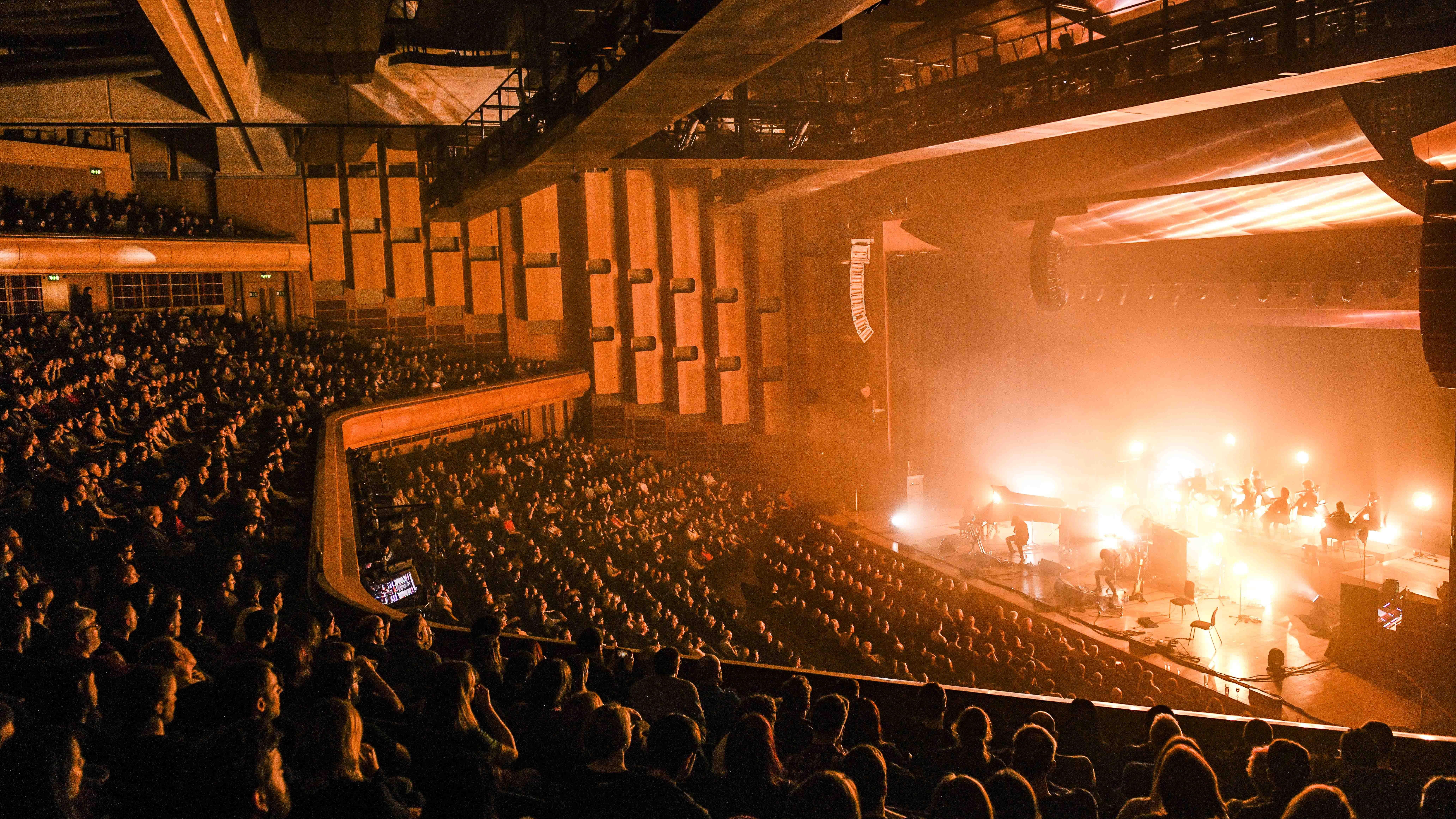
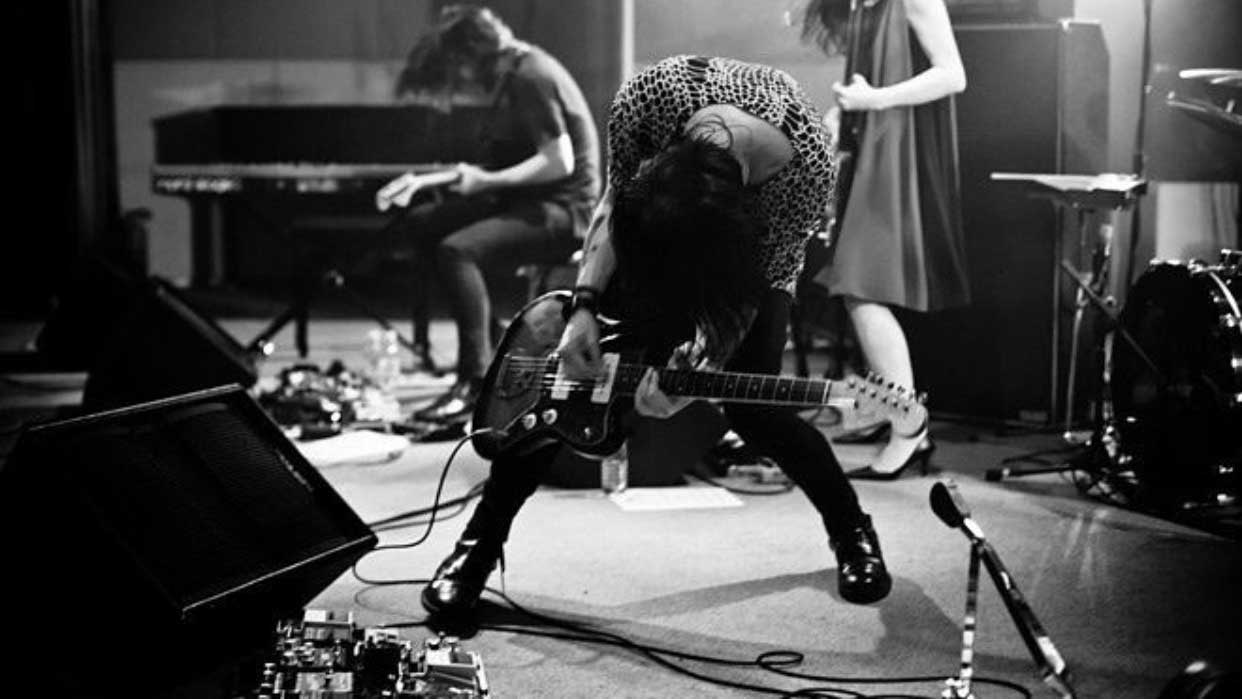
How did you settle on the Fender Twin / Marshall JCM combination? I first saw Mono perform back in 2005 and I am fairly sure you were using both amplifiers then as well.
"When we formed MONO, these were the two amplifiers that our old studio in Tokyo had, haha."
MONO often sounds more like an orchestra than a conventional rock band. Can you talk a little bit about how you achieve that kind of grandiose, sweeping feeling while using what is considered to be traditional "rock" instrumentation?
"Originally, we wanted to be able to create orchestra sounds like Ennio Morricone so by trial and error, we started to find these methods. Whilst classical instrumental can do dynamic controls, you can't with electric guitars.
"So by using reverb, delay and tremolo picking, we were able to create strings-like sounds."
You revisited some older pieces that you haven't played live in quite some time for your most recent tour – namely Com(?) from your 2nd album. How did it feel to revisit a song like that?
When we started to play in the US back in the early 2000's, we really used to play "Com(?)", throw our guitars to the ground and pushed the amps over every night.
"We were all young and driven by uncontrollable emotions of anger and uncertainty of having no place to belong.
"We've had this song sealed for a long time but we thought it'd be the perfect time to revive this as part of the 20 year anniversary celebration. When we actually played, with Dahm joining, the song became even more violent and it's been really fun making loud noises."
I know it is difficult to plan for the future right now, but what's on the horizon for MONO?
"We plan to release a new album sometime this year, and we sincerely hope we can tour again and share our music live with everyone."
For more information of MONO and to preorder Beyond The Past, visit monoofjapan.com
Sam Drower is a sound engineer, musician and all-around music junkie based in Bristol, UK. He began contributing to MusicRadar in 2020, when the global pandemic brought live music to a screeching halt. When not behind the mixing desk for various bands, he is playing bass for blackened mathcore group Host Body.
“I’m beyond excited to introduce the next evolution of the MT15”: PRS announces refresh of tube amp lineup with the all-new Archon Classic and a high-gain power-up for the Mark Tremonti lunchbox head
“These guitars travel around the world and they need to be road ready”: Jackson gives Misha Mansoor’s Juggernaut a new lick of paint, an ebony fingerboard and upgrades to stainless steel frets in signature model refresh
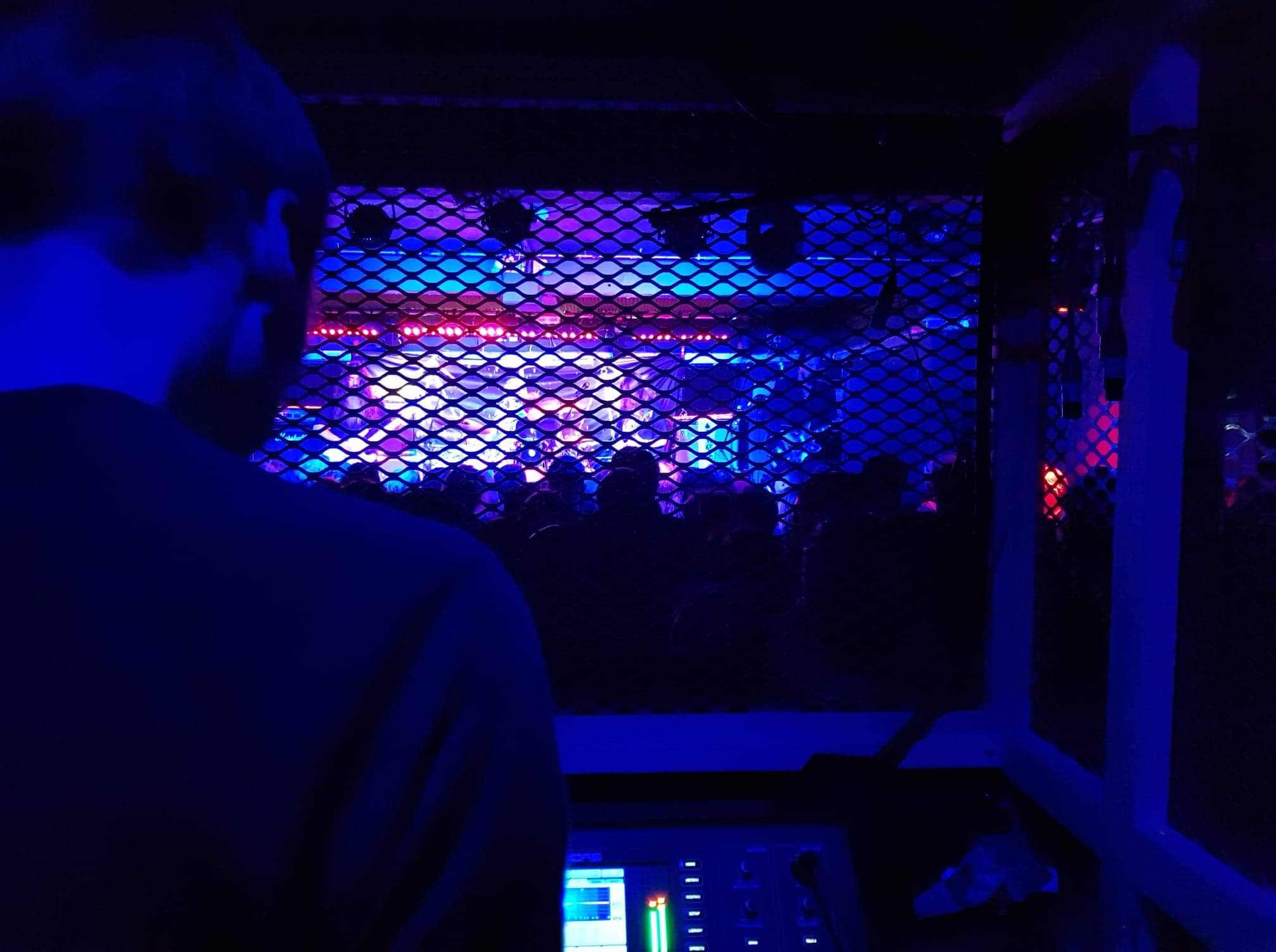


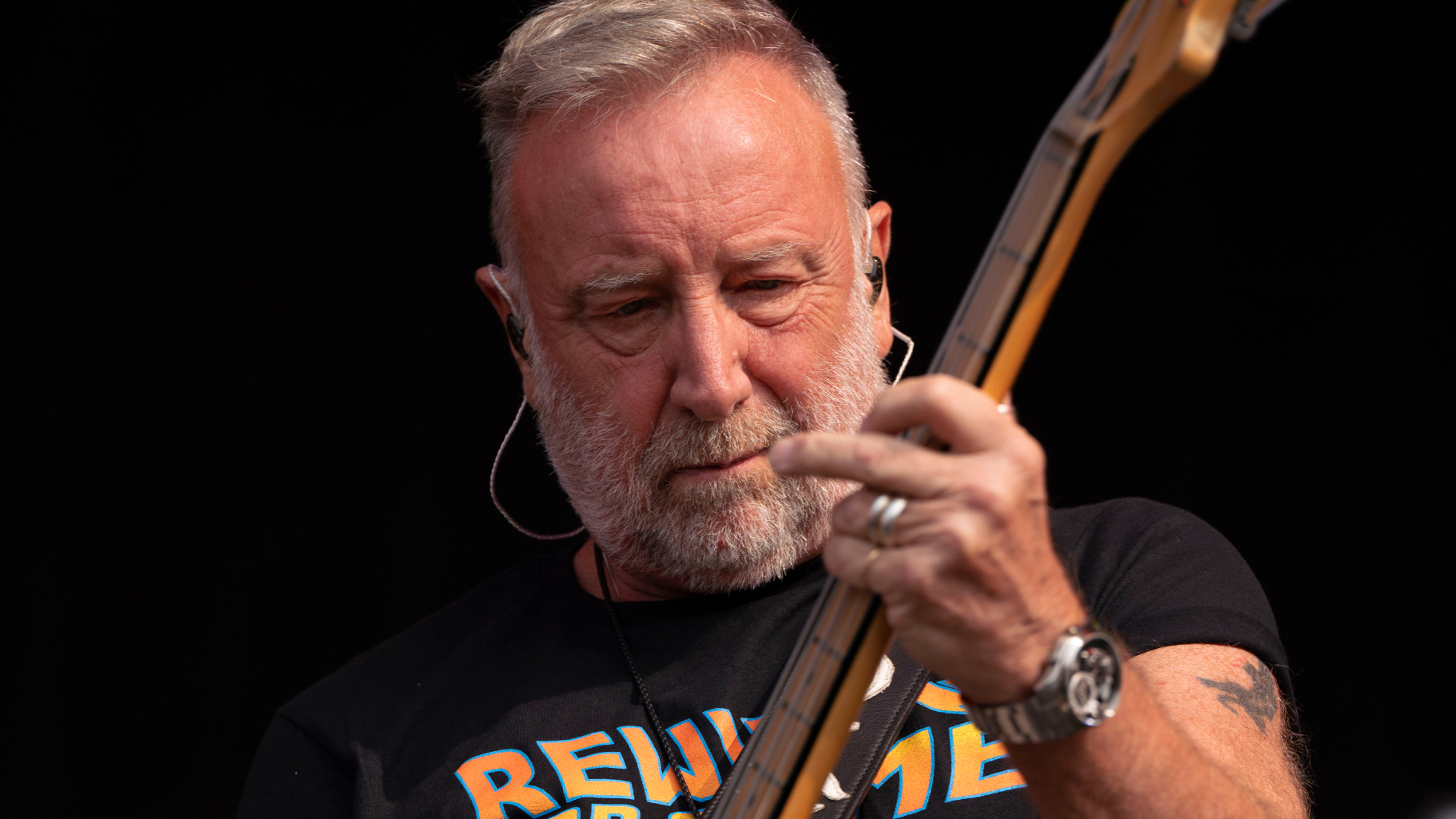
![PRS Archon Classic and Mark Tremonti MT 15 v2: the newly redesigned tube amps offer a host of new features and tones, with the Alter Bridge guitarist's new lunchbox head [right] featuring the Overdrive channel from his MT 100 head, and there's a half-power switch, too.](https://cdn.mos.cms.futurecdn.net/FD37q5pRLCQDhCpT8y94Zi.jpg)





